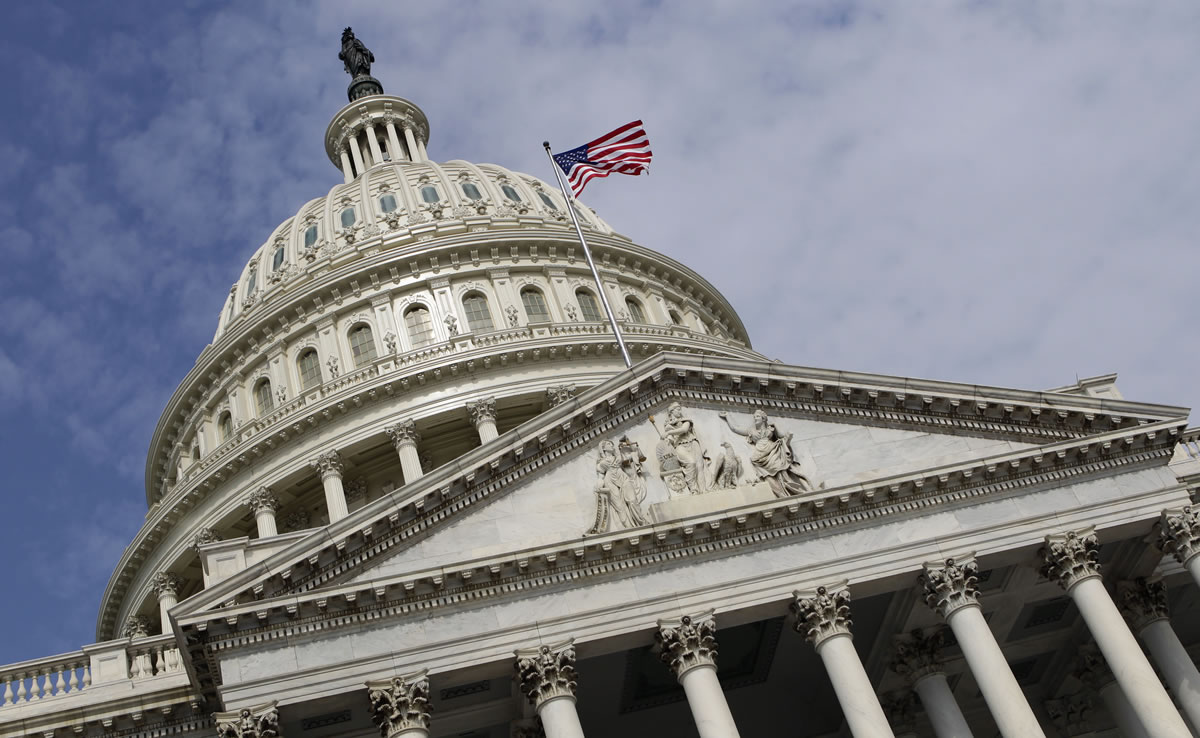WASHINGTON — A frustrated Congress quit Washington on Saturday with at least one hope — that the stark choice in the election ahead will give lawmakers clarity about what Americans want from their government.
They desperately need some direction.
Lawmakers will return in about seven weeks and face a crowded list of must-do items, topped by avoiding the “fiscal cliff”: the combination of expiring George W. Bush-era tax cuts and automatic spending cuts that could drive the country back into recession.
Two years of rancor and a divided government resulted in one of the least productive Congresses in history. President Barack Obama piled on in his weekly radio address.
“Without much fanfare, members of the House of Representatives banged a gavel, turned out the lights, and rushed home, declaring their work finished for now,” Obama told Americans, not mentioning the Senate. “If that frustrates you, it should — because their work isn’t finished.”
Early Saturday morning, the Senate cleared and sent to Obama a bill to keep the government running for another six months. The temporary measure is a reflection of lawmakers’ failure to complete any of the 12 spending bills due by the Oct. 1 start of the fiscal year.
The nation will have to wait until after the election for Congress to deal with taxes, spending cuts, the farm bill and the cash-strapped Postal Service. It comes as no surprise to lawmakers that their public approval has plummeted to about 12 percent.
“I literally get on a plane with a baseball hat and hope to God nobody knows who I am because they’re just going to yell at me,” two-term Rep. Tom Rooney, R-Fla., said Friday as lawmakers prepared to flee the Capitol.
The difficulty for lawmakers is that the presidential election of 2008 and the congressional contests of 2010 contradicted each other.
“The electorate has sent us, has sent the country two very different messages over the last two elections,” said freshman Rep. Mick Mulvaney, R-S.C. “They elected the most liberal president in a long time and then the most conservative group to the House of Representatives two years later.”
The upcoming election — “You sort of look at this as the tiebreaker. I have no difficulty with the big issues of the day being solved at the ballot box,” Mulvaney said.
Voters will chose a president and decide control of the House and Senate on Nov. 6. Republicans say a Romney victory, an increase in their House majority and a majority in the Senate would be a mandate for the changes embodied by the budget of Romney’s running mate, Wisconsin Rep. Paul Ryan.
Ryan’s spending blueprint remakes Medicare, reduces personal and corporate taxes, and cuts spending on safety-net programs for the poor. Republicans insist it is the only way to get a country deep in debt back on track.
If the election restores the status quo — an Obama win, a Democratic Senate and a Republican House — Democrats are optimistic that the GOP would be more willing to compromise, with establishment Republicans prevailing over the wishes of their Tea Party brethren.
Even the most hidebound lawmaker wouldn’t want the alternative, said Rep. Peter Welch, D-Vt.
“Do people want to slog through four more years of dysfunction?” Welch asked. “I think even members of Congress have their limits.”
Said Rooney: “It would be nice to get something accomplished in the 112th” session of Congress.
Over the past two years, the Republican-controlled House and a Democratic-led Senate frequently balked by GOP filibusters struggled for consensus on what had been easy in previous years, such as funding transportation projects. Just over 173 bills became law, far fewer than the 383 in Obama’s first two years, when Democrats held both houses, and fewer than the 460 in the last two years of Republican Bush’s second term with a Democratic Congress.
Senate Republican leader Mitch McConnell of Kentucky had said his priority was to make Obama a one-term president.
Congress has been in session 287 days, compared with 286 in Obama’s first two years. Lawmakers are expected to return Nov. 13 for several weeks of work.
In addition to the expiring tax cuts and the automatic, across-the-board spending cuts of about $110 billion that would kick in Jan. 2 to defense and domestic programs if it doesn’t act, Congress must deal with the five-year farm and nutrition bill, which sets policy for farm safety net programs and funds the food stamp program. Also unresolved are a defense policy bill, cybersecurity legislation and legislation to lift Cold War trade restrictions on Russia, now a member of the World Trade Organization.
The choice, said Sen. Dick Durbin, D-Ill., rests with the voters.
“Decide what you want,” Durbin said on the Senate floor Friday. “Decide if you want to send Democrats and Republicans to this Capitol with an awesome responsibility and also with a spirit of consensus and cooperation.”



